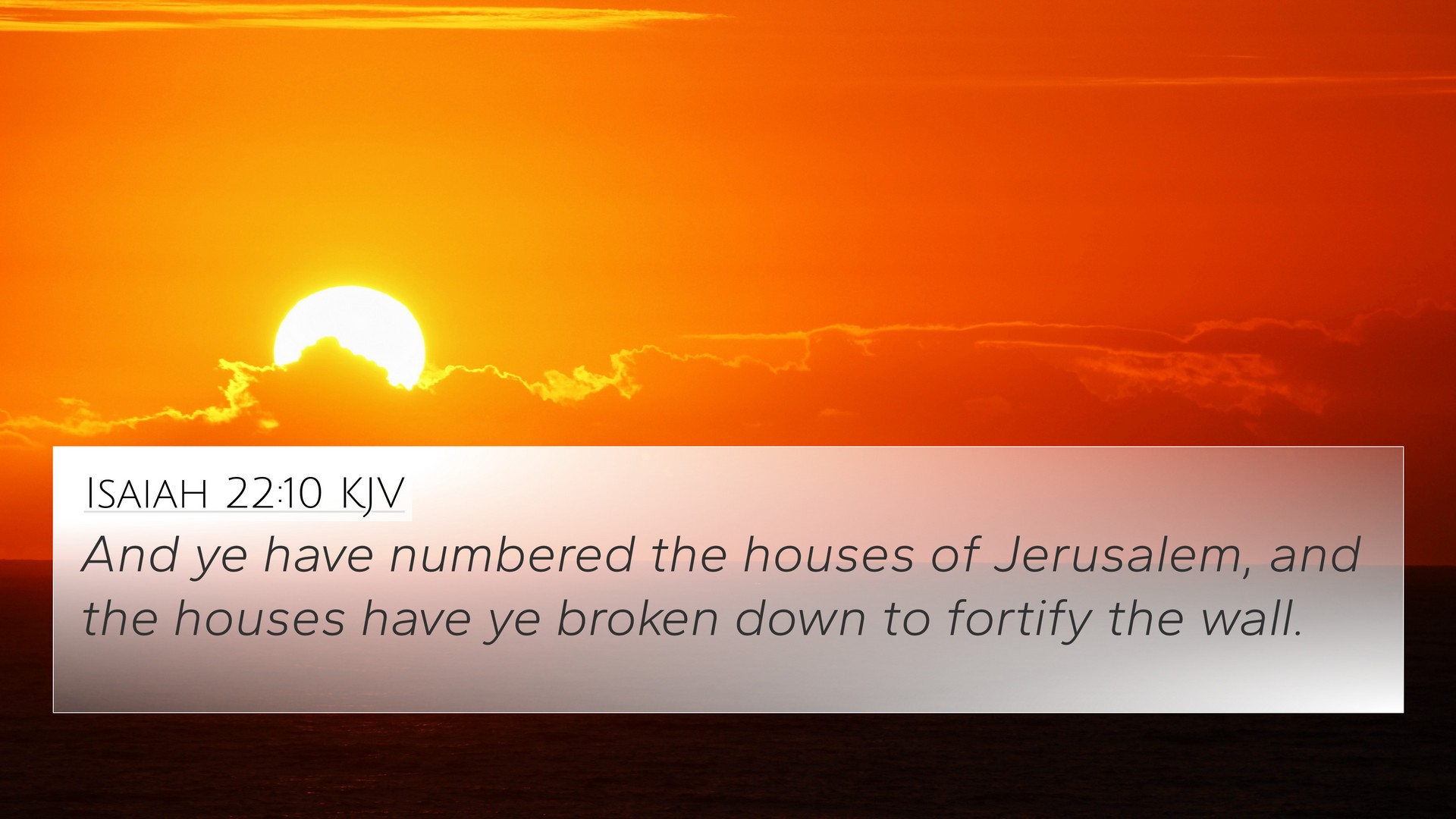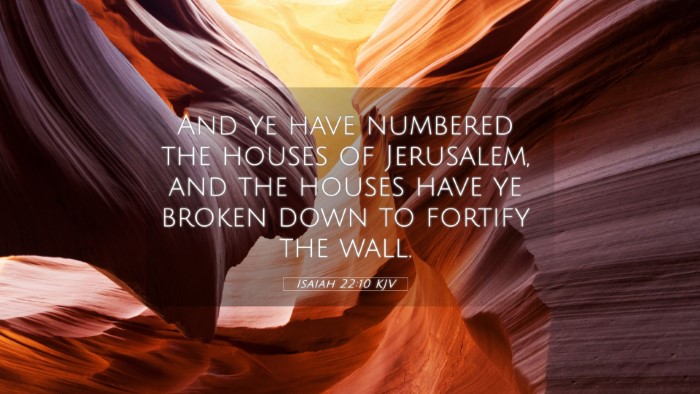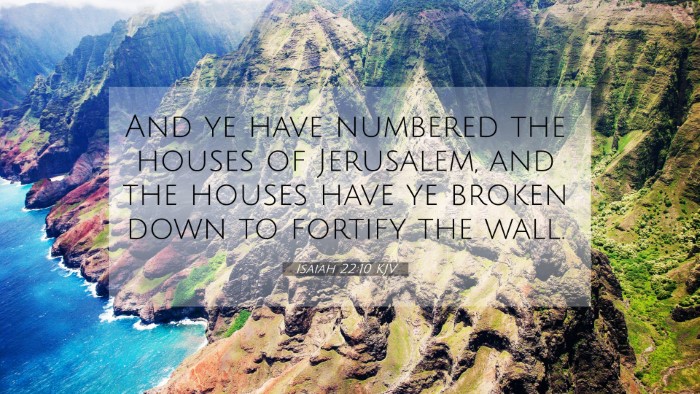Understanding Isaiah 22:10
Isaiah 22:10 states: "And ye have numbered the houses of Jerusalem, and the houses have ye broken down to fortify the wall." This verse partakes in a profound narrative where the prophet Isaiah addresses the people of Jerusalem regarding their actions amidst a time of crisis.
Summary of Context
This passage falls within a larger context where Isaiah is prophesying against Jerusalem's leaders and their actions that reveal a lack of faith and misguided priorities. The people were preoccupied with their immediate needs, such as reinforcing the city’s defenses, while neglecting true spiritual and moral reforms.
Commentary Insights
- Matthew Henry: Henry emphasizes the moral decay of Jerusalem, illustrating that in their desperate attempts to fortify the city, they destroyed homes and neglected the foundations of faith. He notes the irony of seeking security in physical fortifications instead of relying on God.
- Albert Barnes: Barnes highlights that this act of breaking down houses to build a wall signifies a perverse priority. Instead of fortifying their spiritual lives, they are physically securing themselves against enemies. He suggests it reflects a deeper spiritual impotence.
- Adam Clarke: Clarke brings attention to the significance of the number of houses, indicating a thorough examination of their physical surroundings as opposed to their spiritual state. He points out the futility of relying on human efforts when divine intervention is necessary.
Thematic Connections
Isaiah 22:10 connects sensitively with several biblical themes, particularly the contrast between human wisdom and divine omniscience. This reflects a consistent scriptural theme where reliance on earthly means supersedes spiritual trust.
Cross-References
- Isaiah 30:1: "Woe to the rebellious children, saith the LORD." This highlights the disobedience of God's people, a theme prevalent in Jeremiah as well.
- Jeremiah 22:13: "Woe unto him that buildeth his house by unrighteousness." A strong parallel to how physical security was prioritized at the expense of righteousness.
- Lamentations 2:2: "The Lord hath swallowed up all the habitations of Jacob." This echoes the destruction stemming from misplaced priorities.
- Matthew 7:24-27: Jesus speaks of the wise man building his house on the rock, emphasizing foundational fidelity over physical works.
- Romans 1:25: "Who changed the truth of God into a lie." A similar indictment against those who rationalize their actions at the expense of divine truth.
- Hebrews 11:10: "For he looked for a city which hath foundations." Reflecting the purpose beyond temporary security.
- Psalm 127:1: "Except the LORD build the house, they labor in vain that build it." This is a reminder of the futility of earthly endeavors without God's blessing.
- 1 Peter 2:5: "Ye also, as lively stones, are built up a spiritual house." Connecting to the spiritual nature of God's building compared to physical security.
- Isaiah 26:1-2: "We have a strong city." A reminder that true security lies in the Lord, contrasting the urgency in Isaiah 22:10.
- Philippians 3:19: "Whose end is destruction, whose God is their belly." Highlights the earthly priorities that lead to spiritual destruction, echoing the lesson from Isaiah.
Tools for Cross-Referencing
When exploring the connections between Bible verses, utilizing available Bible concordance and Bible cross-reference guides can deepen your study. These resources equip readers to find cross-references effectively and assist in detecting thematic Bible verse connections.
Understanding narratives within the scripture helps illuminate connections between different parts of the Bible. How to use Bible cross-references effectively allows for a deeper understanding of scripture's interwoven nature.
Conclusion
In conclusion, Isaiah 22:10 illustrates a crucial point regarding the importance of prioritizing spiritual wisdom over physical actions. This verse serves as a profound reminder of the inherent dangers in misplacing trust and seeking security in places that ultimately lead to spiritual barrenness.
As you delve into further comparative Bible verse analysis, consider the robust connections between scriptures, leading you to a greater understanding of God's message through His word.


